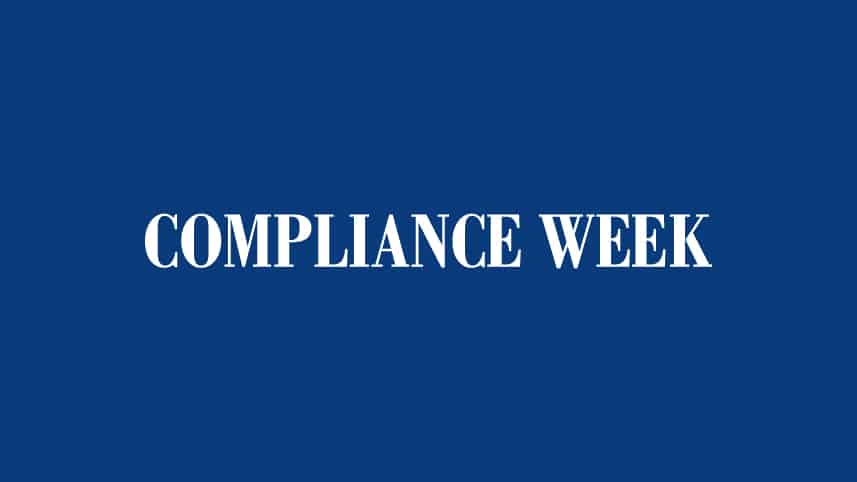Whistleblower Rewards: Programs & Payouts Guide
Whistleblowers may be eligible to receive whistleblower rewards for voluntarily providing the proper authorities with original, timely, and credible information that leads to a successful enforcement action against a fraudster. Rewards are paid as a percentage of the money recovered from a qui tam lawsuit or claim made under the IRS, SEC or CFTC whistleblower programs.
Updated September 1, 2023

Whistleblowers may be eligible to receive whistleblower rewards for voluntarily providing the proper authorities with original, timely, and credible information that leads to a successful enforcement action against a fraudster.
Rewards are paid as a percentage of the money recovered from a qui tam lawsuit or claim made under the IRS, SEC or CFTC whistleblower programs. Each program requires the government to pay a minimum reward to the whistleblower of between 10 and 15 percent. Under some laws, the reward can be as much as 30 percent of the money recovered.
U.S. whistleblower reward laws are incredibly powerful, and the best for compensating and protecting whistleblowers. Under certain laws, both U.S. citizens and foreign nationals can qualify for financial rewards as whistleblowers if they disclose violations that result in the U.S. obtaining sanctions from the wrongdoer.
History of Whistleblower Rewards
The first known whistleblower law to provide a reward was the qui tam law. This law was enacted in 1318 by King Edward II, who offered one-third of the penalty to the qui tam relator, or “whistleblower,” when the relator successfully sued government officials who moonlighted as wine merchants.
The Maintenance and Embracery Act 1540 of Henry VIII provided that common informers could sue for certain forms of interference with the course of justice in legal proceedings that were concerned with the title to land.
It wasn’t until 1863 that a new modern whistleblower law was introduced. Enacted by Abraham Lincoln during the civil war, the False Claims Act qui tam provision permits citizens to sue on behalf of the government and be paid a percentage of the recovery. This law is still in effect today and is one of the strongest for whistleblowers.
Whistleblower Rewards: Programs & Payouts
The whistleblower rewards a whistleblower is eligible to receive, and amount, depends on the type of fraud or violation being reported and the detail of information provided.
Some reward programs pay rewards to whistleblowers who report government contract fraud or schemes designed to defraud the government. Others pay rewards and protect employees who work for corporations and report fraud, misconduct, mismanagement and other financial negligence.
Internationally, rewards are paid to those who expose corruption, such as foreign bribery or uncover sophisticated money laundering schemes.
Below is a list of the most established U.S. whistleblower laws:
False Claims Act / Qui Tam Provision
The federal False Claims Act empowers individuals and other entities to enforce laws that prohibit fraud in government contracting. The first modern whistleblower law, the False Claims Act, incorporated qui tam at the core of its anti-corruption powers.
The whistleblower may be eligible to receive a reward between 15 and 25 percent of what the government recovers, if the government intervenes in a qui tam case.
IRS Whistleblower Program
The IRS Whistleblower Office pays whistleblower rewards to those who report original, timely, and credible information to the IRS and the information results in the collection of taxes, penalties, or other interest from the noncompliant taxpayer.
The IRS may also pay rewards for information regarding a matter that is the subject of an IRS criminal tax fraud investigation, or on reports of falsified information provided on forms required by the IRS. If the taxes, penalties, interest and other amounts in dispute exceed $2 million, and a few other qualifications are met, the IRS will pay 15 percent to 30 percent of the amount collected.
SEC Whistleblower Reward Program
Under the Dodd-Frank Act, the SEC Office of the Whistleblower administers this reward program. The main purpose of this office and program is to minimize harm to investors, preserve the integrity of US capital markets, and quickly hold accountable those responsible for unlawful conduct under securities law. The Securities Exchange Commission Commission is authorized by the United States Congress to provide monetary awards.
Eligible individuals are those who come forward with original and credible information that leads to an SEC enforcement action.To receive an award, the sanctions must be over $1,000,000. The range for awards is between 10 to 30 percent of the money collected.
CFTC Whistleblower Award Program
Under the Dodd-Frank Act, the U.S. Commodity Futures Trading Commission will pay anonymous whistleblowers a monetary reward to those with original information resulting in a sanction of $1 million or more. The CFTC does not disclose the exact dollar amount of any awards granted, nor do they disclose the name of the enforcement action in which the whistleblower provided information.
Whistleblowers are eligible to receive between 10 percent and 30 percent of the monetary sanctions collected from an investigation. No money is taken or withheld from injured customers to fund the program.
Foreign Corrupt Practices Act
Enacted by congress in 1977, The Foreign Corrupt Practices Act (FCPA) is a United States law that prohibits the payment of anything of value to foreign government officials in order to obtain a business advantage. This includes foreign bribery, kickbacks, and other forms of unscrupulous bartering, even money laundering.
The FCPA also requires publicly traded corporations to make and keep accurate books and records. As part of the Dodd-Frank Act, if the SEC or CFTC sanctions a culpable party for over $1 million dollars, whistleblowers can obtain monetary rewards for disclosing violations of anti-corruption laws contained in the Foreign Corrupt Practices Act.
Under either the SEC or CFTC whistleblower program, a US or international whistleblower may receive an award of between 10 percent and 30 percent of the total monetary sanctions collected.
Other Reward Laws
There are several other laws that provide monetary rewards. However, these programs are not nearly as effective as the ones above:
Auto Safety Act
Under the Motor Vehicle Safety Whistleblower Act, whistleblowers can receive a whistleblower reward of up to 30 percent of any monetary sanctions against a fraud. The total sanction amount must be over the $1,000,000 threshold, based on the quality of the information a whistleblower discloses. Read more about federal protections for auto-workers.
Act to Prevent Pollution from Ships (APPS)
In regards to the disclosures made about pollution on the high seas, the APPS whistleblower provision permits federal courts to pay whistleblowers up to 50% of the fines the government collects in a successful prosecution. View Ocean Pollution (APPS/MARPOL) Cases
The Lacey Act and the Endangered Species Act
the Lacey Act makes it a federal crime to purchase, sell, import, export, acquire, or receive any wildlife that was taken, possessed, transported, or sold in violation of any law or regulation of any State or in violation of any foreign law.
Under the Lacey Act, it is also illegal to mislabel wildlife shipments, bring injurious species into the country, and import live wildlife under inhumane conditions. Furthermore, the Endangered Species Act of 1973 is the primary law in the United States for protecting declining species. This act was created to protect critically imperiled species from extinction. The United States Supreme Court called it “the most comprehensive legislation for the preservation of endangered species enacted by any nation”.
The ESA states:
“The Secretary or the Secretary of the Treasury shall pay, from sums received as penalties, fines, or forfeitures of property for any violation of this Act or any regulation issued hereunder (1) a reward to any person who furnishes information which leads to an arrest, a criminal conviction, civil penalty assessment, or forfeiture of property for any violation of this Act or any regulation issued hereunder, and (2) the reasonable and necessary costs incurred by any person in providing temporary care for any fish, wildlife, or plant pending the disposition of any civil or criminal proceeding alleging a violation of this Act with respect to that fish, wildlife, or plant. The amount of the reward, if any, is to be designated by the Secretary or the Secretary of the Treasury, as appropriate.”



